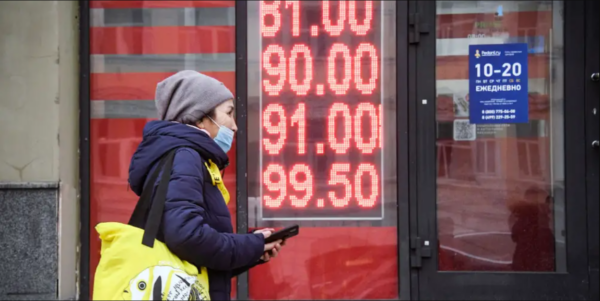Economists predict a decline in productivity and innovation and other challenges.
“Very advanced digital skills” have helped Russia’s economy, Wharton Management School Professor Dr. Philip M. Nichols told Insider, adding that software and programming would soon “experience revolutionary developments” like quantum computing.
“Russia will not have access to the technology that would enable them to mimic those hardware breakthroughs,” Nichols said, adding that strained connections with other nations will prevent its businesses from adapting.

Russia’s response to the artificial intelligence gap will be intriguing.
“Russia’s people are tough, and they will accomplish something, but technology cannot just be imagined into being,” Nichols said.
According to a recent study from Finland’s central bank, the government has had to find alternatives to “unfriendly countries”—more than 50% of the world economy—for imports.
According to Nichols, many of young, creative Russians have deserted the nation. Skilled people depart, reducing production and creativity.
China pivot
Russia needs new commercial partners after losing the world’s main export markets.
Dr. Donald Hanna, UC Berkeley Haas School of Management professor, predicts Russia will become increasingly dependent on China as the war continues.
“How much of an economic setback that becomes for Russia depends on the relative pace of technological advancement in China and Russia itself (which has been hindered by brain drain sparked by the war) and on the nature of the trade/technology relationship that evolves between Russia and China in coming years,” macroeconomist Hanna told Insider.
“The more China perceives Russia as a valuable political foil against Western efforts to curb China’s rise and/or as a cheap supply of raw material inputs, the less likely economic results will favor Russia.”
If Russia turns to China for technology and other “advanced stuff,” Nichols thinks the two states will certainly become more politically entwined.
The Kremlin believes Russia will become a Chinese “resource colony” despite its natural wealth.
State-dominated economy
Russia is restructuring to become self-sufficient amid sanctions.
“They are definitely headed into more state control, and likely into settling into some sort of longer-run equilibrium once the new trade infrastructure is established,” said Dr. Aleksandar Tomic, associate dean for strategy, innovation, and technology at Boston College and program director for the master of science in applied economics program.
Nichols said the Kremlin has concentrated political and economic authority under Putin. “Even non-state enterprises have tight ties with the Kremlin. The trend will intensify as the economy stagnates.”
Nichols added: “I believe Russia will contribute to the global economy and community. War has delayed that future. Russia invaded its neighbor, but no one knows why.”

